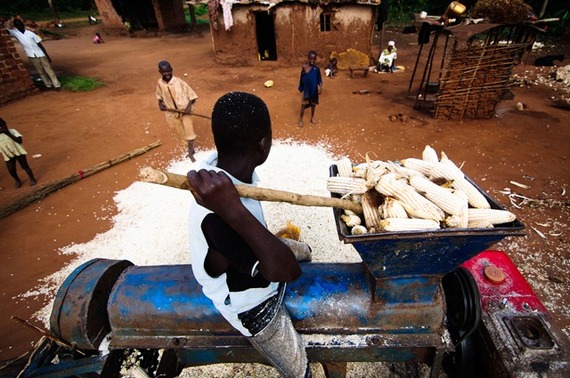Sendhil Mullainathan is a MacArthur genius grant recipient and economics professor at Harvard University. His key research interest is why people make certain decisions, particularly when they are under stress. For example, why do seriously ill patients often fail to follow life-saving medication regimens and why do parents give inconsistent signals to their children? When he looked at various manifestations of people not doing what is in their best interest, he found one common predictor. Poorer people do consistently worse than those who are wealthier.
Some observers might deduce that bad choices lead to poverty. Mullainathan disagrees. Drawing on research that originated in psychology and that Mullainathan and his colleagues have extended to economics, he concludes that scarcity and limited bandwidth lead to poor decision-making. In a recent book that summarizes the research, Mullainathan describes how Western research subjects, who had been starved, did in simple, cognitive tests that had them recognize words. Sprinkling in food-related vocabulary threw off hungry participants enough so that they measurably underperformed against their well-fed peers. In a developing country setting, researchers tested the cognitive performance of sugar cane farmers in the Southern Indian state of Andhra Pradesh before the harvest, when the farmers were stressed, and after the harvest, when their livelihoods for the year had been secured. Across several tests, when stressed the same farmers were 15-25 percent "less smart".
These observations have profound implications for financial access. At a macro level, they would suggest that the mere notion of availability of financial services, such as the ability to build a cushion, to smooth consumption in the face of irregular income streams, or to better manage risks through insurance, might in of itself improve household welfare because it gives people the peace of mind to make better decisions. When the KGFS in India -- arguably one of the most intriguing start-ups aiming to reach base-of-the-pyramid population segments at scale -- designed its approach five years ago, it made the conscious decision to anchor its services around a physical branch presence to signal to the local catchment area, "we are here to stay, and we are here when you need us, even if that is not now."
The notion of limited cognitive bandwidth when stressed or deprived also suggests that for a new financially responsible product to be successful, it should be designed to fit squarely into the narrow tunnel of a potential customer's focus. It must be able to convey immediate benefits alleviating the current overarching concern without inflicting unintended harm or otherwise help overcome the powerful psychological barriers that lead us all to make sub-optimal decisions when under pressure. Savings products, which allow us to lock money towards specific targets away from ourselves, are a great example of this because they help us resist temptation for current sub-optimal spending in favor of future needs or priorities.
Another example is that of insurance, which is a tough sell under the best of circumstances. Even though randomized controlled evaluations have shown crop insurance for smallholder farmers in Africa, for instance, to be very effective in increasing income and reducing poverty levels, consumer uptake is typically very low. MicroEnsure, an innovative microinsurance intermediary, has recognized this demand-side reality. It is now successfully experimenting with ways to have third parties, who derive unrelated business value, such as mobile phone companies interested in reducing customer churn, to pay for the premiums of simple, base-of-the-pyramid life or property insurance coverage. Once consumers witness insurance pay-outs in their community, their ability to envision benefits and their willingness to buy coverage increase.
There is a growing body of empirical evidence that shows that the appropriate financial services help poor families in the informal economy of developing countries improve their lives. Sendhil Mullainathan's powerful research on scarcity and its impact on decision-making points to additional, fundamental mechanisms, which suggest that access to the right financial services might be even more important than we thought.

